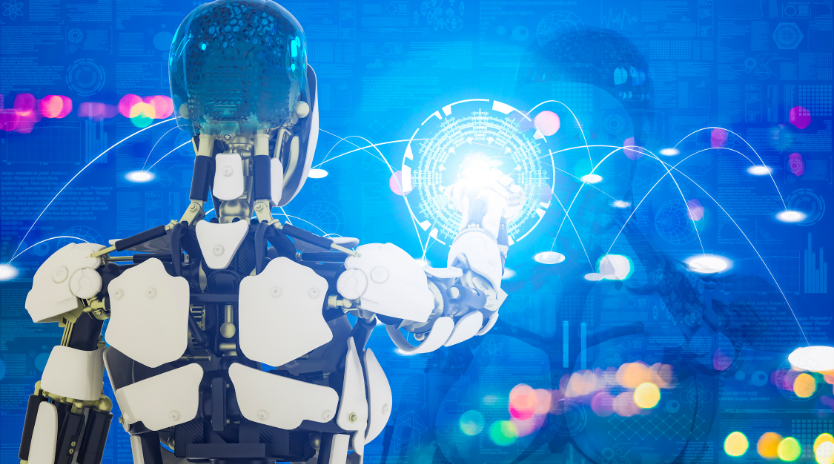Artificial Intelligence Appreciation Day: Impact, Challenges, and Uses in SEO
Many might believe that Artificial Intelligence was created recently. However, in the 1950s there was a generation of scientists, mathematicians, and philosophers already thinking about this concept. Actually, back then, the young British polymath Alan Turing suggested that machines could also use information as well as reason to solve problems and make decisions. As times began to modernize, AI started to become a reality. So much so that we observe Artificial Intelligence Appreciation Day on July 16 every year.
With discoveries in various industries like science and healthcare, AI offers the possibility of a more evolved future. But what about its role in digital marketing? How is Artificial Intelligence impacting search engines and how can we use these tools more honestly and responsibly? Keep reading to find out all about it.
1. AI’s Impact on SEO
Artificial Intelligence is revolutionizing digital marketing in many useful ways. For instance, it has enabled marketers to create personalized strategies by analyzing vast amounts of data as a means of understanding consumer behavior, preferences, and buying patterns. As a result, businesses can tailor their messages to customers significantly enhancing engagement, conversion rates, and ROI.
Additionally, there has been an increase in the use of AI tools to generate content. Tools like ChatGPT can curate any kind of content such as social media posts, product descriptions, subject lines, website content, and even blogs and articles.
Nonetheless, while these tools can indeed speed up the content creation process, there are consequences to relying solely on them. For example, many AI models are unable to determine whether the information they collect from the web is correct or not. This means that it could generate content with data that is unreliable, outdated, or even biased. In this case, although Google has confirmed that AI-generated content can rank in its search engines, it can also prioritize more current content, potentially impacting a company’s search ranking.
Another problem is the creation of duplicate content. Thousands of people might be asking the same question and pasting the response into their content. However, it is a mistake to underestimate Google since it can detect and penalize low-quality content that is unoriginal or lacks expertise. Therefore, when using AI tools, it is best to combine it with human expertise and creativity. The positive and proper use of AI can lead to more efficient and effective SEO practices, such as improved keyword targeting, better content optimization, and enhanced link-building strategies.
2. Understanding AI Challenges
While AI offers powerful capabilities, it’s essential to understand that it also comes with certain challenges. Let’s look at some of them as we continue to observe Artificial Intelligence Appreciation Day.
- Emotional Intelligence: AI struggles with understanding the emotional aspect that humans possess. This can be problematic since AI may sound robotic or cold, which could depersonalize customer experiences. It’s important therefore to ensure balance and maintain the human affinity of a brand. Keep in mind that AI models are only as good as the data used to train them due to the limited availability of high-quality data to orient them. This is why when using tools, it’s important to be extremely thoughtful about detecting bias to avoid leading to one-sided information.
- Data Privacy: There have also been challenges regarding ethical practices specifically about data privacy. Concerns have been raised about how AI-driven marketing strategies store, use, and protect massive amounts of user data. As a response, GDPR and other data protection regulations have been enforced to address these concerns, but compliance remains a challenge.
- Algorithm Updates: Algorithms in search engines evolve continually, often with important updates to improve user experience, fight spam, and refine search results. All of these can influence SEO strategies and AI tools used in digital marketing require continuous monitoring and adjustment to stay effective in the face of these rapid changes. However, this task requires time and might not happen at the same speed as these elaborate algorithms.
To overcome these challenges, it’s key to choose AI solutions carefully and focus on human strengths. With a thoughtful, human-centered approach, marketers can embrace the power of AI while avoiding the pitfalls.
3. Effective Use of AI in SEO and Digital Marketing
As mentioned before, AI has significantly alleviated the time used in certain processes. Here are some tips on how and when to employ it in SEO and digital marketing purposes for responsible and effective results.
- Keyword Research: One of the foundations of a successful SEO campaign is keyword research as it directly impacts how effectively your content can attract and engage with the right audience. Using AI tools for this purpose is beneficial to facilitate the process of identifying specific terms and phrases that potential customers use to search for information, products, or services related to a business.
- Audience Segmentation: AI’s analytical ability allows marketers to segment customers with remarkable precision. It can examine factors like patterns of behavior, preferences, and even emotional responses. This enables a better understanding of target demographics, facilitating the creation of highly tailored marketing strategies and ensuring messages resonate more deeply with each segment.
- SEO Audits: Regular SEO audits are crucial to maintaining and improving website performance. These audits can be automated by AI technologies to identify issues such as broken links, missing meta tags, or slow page speeds to effectively optimize a website.
- Customer Journey Optimization: One of the most fundamental elements of a successful marketing strategy is understanding the customer journey. AI can help marketers identify challenges and opportunities for improvement by mapping out elaborated customer journeys across various touchpoints.
- Campaign Management: AI-driven platforms can enhance campaign management by automating tasks such as performance tracking. This allows marketers to free some time on repetitive assignments and focus on strategic planning and creative work. In addition, AI may even help optimize marketing campaigns in real time, adjusting strategies based on performance data to maximize ROI.
As we observe Artificial Intelligence Appreciation Day, we notice how AI’s rapid advancement is making it an integral part of the digital marketing toolkit and SEO services in Fort Lauderdale. Marketers and business owners must therefore understand, adapt, and evolve with AI for more effective and sustainable outcomes. However, let’s be conscious about it and use it to augment human expertise, not replace it. The future of AI is promising and by integrating it thoughtfully and responsibly we’ll be able to balance it with the irreplaceable human touch, ensuring both innovative and deeply personal marketing strategies.



